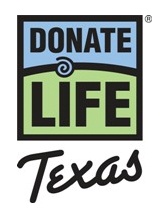The U.S. is suffering a severe shortage of organ donors: More than 110,000 people are on the waiting list for an organ transplant, including more than 10,000 in Texas. But the Lone Star State is stepping up: In 2005, state lawmakers called for the creation of an online donor registry—found at www.donatelifetexas.org—where people can declare their organ, tissue and eye gift intentions upon death. In 2007, the Texas Legislature changed the registry’s name to the Glenda Dawson Donate Life-Texas Registry in memory of the state representative’s contributions to promote organ, tissue and eye donation in Texas. Dawson, who died in 2006, was a kidney transplant recipient.
Officials ask registered donors to convey their wishes to family members so that their decisions may be carried out. Many misconceptions surround organ donation. The following list addresses some of the key points and questions about donation:
• Organ donors donate their major vital organs: heart, kidneys, pancreas, lungs, liver and intestines. Donated tissue includes corneas, skin, bone, heart valves and tendons.
• Of the almost 2.5 million people who die in the U.S. every year, less than 3 percent are eligible to be organ donors. Almost everyone, however, can be a tissue donor.
• Because of the donor shortage, more than 6,500 of the people on the national waiting list—about 18 people per day—died last year.
• More than half of those awaiting a transplant in the U.S. are ethnic minorities.
• Transplant success rates increase when organs are matched between members of the same ethnic and racial groups. An individual is less likely to reject a kidney if it is donated by an individual who is genetically similar. A lack of organs donated by minorities can contribute to death and longer waiting periods for organ transplants.
• A new name is added to the United Network for Organ Sharing waiting list every 16 minutes. The private, nonprofit organization manages the nation’s organ transplant system under contract with the federal government.
• Donation does not disfigure the body or prevent an open-casket funeral.
• Donated organs are removed in a sterile, surgical procedure, in a hospital operating room, by skilled surgeons.
• Organ and tissue donation is considered only after all efforts to save the patient’s life have been exhausted and death has been legally declared.
• Organ recovery coordinators will always explain the donation options to the family before requesting permission from the next of kin to recover the organs for transplantation.
• There is no known major religion in the U.S. that is opposed to organ and tissue donation. In fact, many religions endorse organ and tissue donation as an act of charity.
• Few people are too old or too young to donate. There are no age limits for donors. At the time of death, medical professionals will determine whether a body’s organs are transplantable.
• The organ allocation system is blind to wealth, celebrity and social status. Donated organs are placed in recipients based on best medical match and most critical need.
• No costs directly related to organ or tissue donation are passed on to the donor’s family or estate.
——————–
Source: Texas Organ Sharing Alliance, 1-866-685-0277

